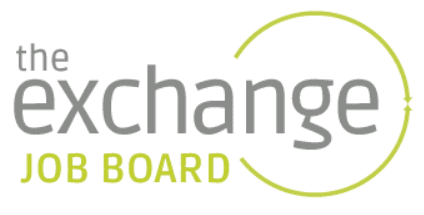
The end of the school year is quickly approaching, and focus is quickly turning towards summer learning and the work ahead to accelerating student learning next school year. It’s clear that schools, systems, networks, and education organizations want to maximize the opportunity and unprecedented funding available to reimagine student learning. A year of disrupted learning — where data show students of color trailing white peers in terms of access to and attendance at in-person instruction — leaves concern about widening opportunity and achievement gaps. Meanwhile, the Elementary and Secondary School Emergency Relief Fund (ESSER) and the American Rescue Plan Act (ARPA) is funneling $1.8 trillion to schools, students, and families — a figure that one partner points out is as much as the U.S. spent to rebuild Europe after World War II, when adjusted for inflation.
We face a singular opportunity in public education, and we can’t return to a normal that wasn’t working for so many. Secretary of Education Cardona sums up our charge: “Collectively, we must recommit to our mission of serving all students. That means not just opening back up for in-person instruction, but building a world class education system that is better than it was before March 2020.”
Yet it takes much more than inspiration, ideas, and funding to drive lasting systems change. It also takes talent to transform — adaptive, inclusive leaders who know and can work at a system-by-system or community-by-community level. That’s where EP comes in.
EP has a front-row seat to how school systems are grappling with reopening and learning recovery. Our COVID Response Fellowship brought Chief of Staff-level talent to more than 20 school districts and charter networks across the country, and we’ve talked to 50+ additional school systems about what they anticipate for the next year. Here’s what we’ve learned:
- There are no silver bullet solutions; even common challenges affect different communities differently. Even when districts may face a similar challenge – like how to protect their educator workforce via COVID testing or the vaccine – solutions need to match nuanced contexts. Five of our COVID Response Fellows were deeply involved in this work, yet saw dramatically different needs as they led efforts ranging from a small 2,000-employee district up to the nation’s second largest district with 75,000 employees, which required standing up a mass vaccination site inside a professional sports arena.
- Smart ideas and strategies abound – but implementation capacity is critical to realizing any progress. Local communities, leaders, educators, and partners are all working hard to identify the critical interventions that will accelerate student learning. These efforts include a focus on summer learning, out-of-school time (including high-dosage tutoring), in-school intervention structures, family and student reengagement, whole-student/social-emotional support, and more frequent and iterative assessments These efforts, paired with unparalleled resources, have the potential for real impact if systems can deploy the adaptive, flexible, and strategic capacity to align these interventions with long-term priorities, plan and organize implementation, and manage the adaptive challenges of learning, improvement, and integration along the way.
- People at all levels are, simply put, exhausted; we can’t expect them to stretch further.Experts are noticing that the pandemic is causing an unusual amount of turnover in superintendent positions. Among COVID Response Fellows, we’ve seen executive leadership turnover at 3 of 10 districts – specifically, the nation’s three largest districts. We cannot simply expect to add new initiatives or priorities to educators and leaders who are already maxed out.
EP is uniquely positioned to provide the capacity K-12 needs during the 2021-2022 school year. We have an 18-year track record of bringing effective, equity-oriented skilled professionals to education organizations through time-bound Fellowships, usually 10 weeks or 10 months. In this moment, ESSER and ARPA funds may provide a platform for school systems to bring on time-bound capacity to support reopening and learning recovery priorities, without the risk of needing to bring on an indefinite hire. EP Impact Fellows — slated to begin in Fall 2021 — can provide 10 months of specialized short-term capacity to match the short-term need to respond during the next school year.
The education sector won’t be able to seize this unique opportunity to redefine education and maximize the investment of billions of dollars without a clear plan that includes good ideas that center equity AND the additional capacity needed to implement them. EP is ready to do our part.
Interested in exploring hosting a 2021-2022 Impact Fellow? Learn more here.
| Terrence Kneisel is the Vice President of External Relations, where he focuses on building awareness of the critical work of Education Pioneers and partnering with current and future champions of EP. Terrence started his career as a middle school English Language Arts (ELA) teacher in Navajo, NM. Following his time teaching, Terrence joined Teach For America, where he served as the Director of Development in Baltimore and then a Senior Director of Talent Acquisition, working with more than 15 different regional sites on their talent pipeline needs. Most recently, Terrence was at New Leaders, where he was the Executive Director of City External Relations Support and Executive Director of Recruitment and Admissions. |



